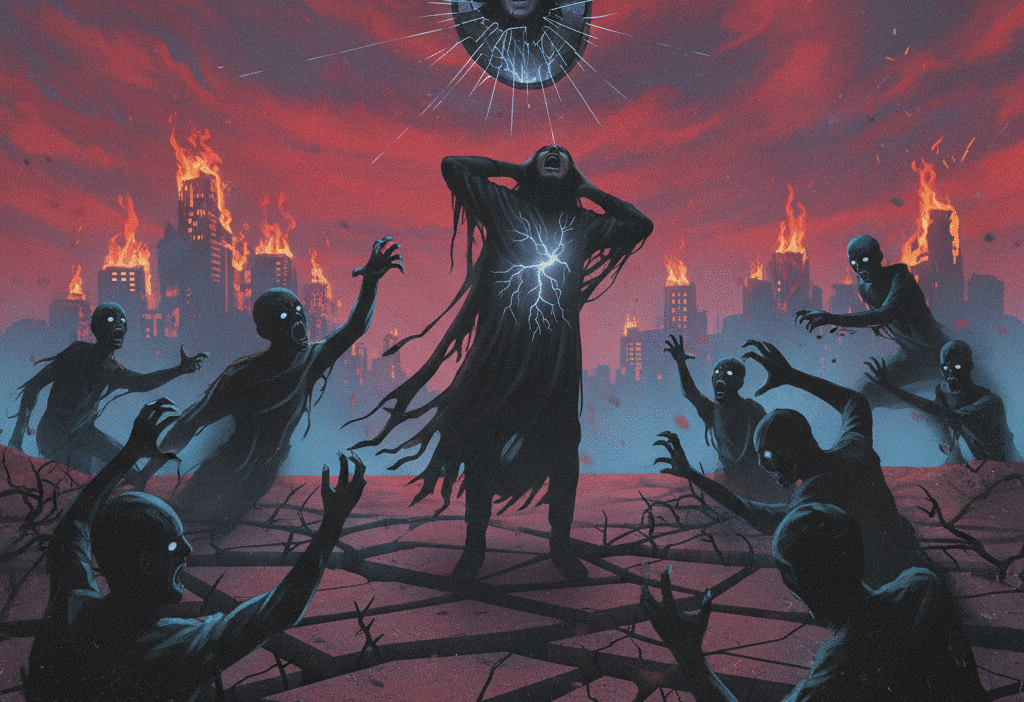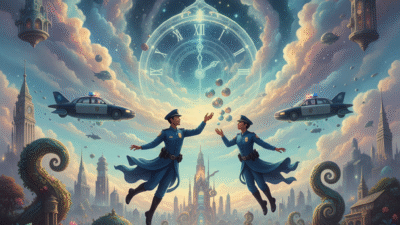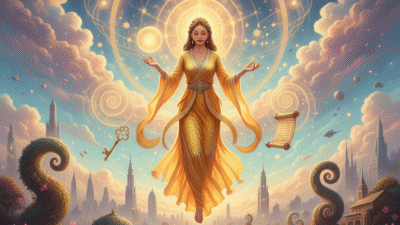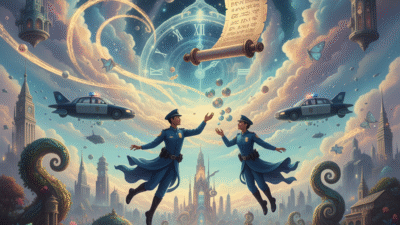Dreams about violence can be unsettling, but they rarely predict literal harm. In most cases, a violent dream meaning points to inner conflict, repressed anger, emotional stress, or a struggle for control in your waking life. Rather than forecasting danger, these dreams often mirror psychological or spiritual unrest — urging you to confront hidden emotions and restore balance.
Understanding the Fascination with Violent Dreams
Violent dreams capture attention because they’re so vivid, emotional, and often confusing. They may involve fighting, being attacked, or witnessing chaos — scenes that leave you waking up anxious or shaken. Yet, these intense dreams serve a powerful purpose. They act like mirrors reflecting suppressed fears, guilt, or trauma, helping your subconscious mind process powerful emotions you might ignore when awake.
This article explores the violent dream meaning from multiple angles — psychological, spiritual, and cultural. You’ll learn what violent dreams symbolize, what common variations reveal about your emotions, and how to interpret them for personal growth. By the end, you’ll see that these dreams aren’t warnings of doom but valuable messages from your inner self.
General Meaning and Symbolism of Violent Dreams
Violence in dreams often symbolizes internal turmoil rather than external danger. Dream analysts like Carl Jung and Sigmund Freud viewed such dreams as projections of the shadow self — the hidden parts of our psyche containing repressed emotions and instincts.
Psychological Interpretation
From a psychological viewpoint, dreaming of violence can represent:
- Repressed anger or frustration — unresolved conflicts may emerge as violent imagery.
- Loss of control — feeling powerless or overwhelmed in real life can manifest as violent encounters in dreams.
- Defense mechanisms — violence might symbolize self-protection, your mind’s way of coping with emotional threats.
- Emotional release — a violent dream could be a subconscious “pressure valve,” releasing pent-up stress safely during sleep.
Sometimes, these dreams indicate you’re standing up for yourself internally — confronting a fear, guilt, or limiting belief that no longer serves you.
Spiritual Meaning
Spiritually, the violent dream meaning often points to transformation. In many belief systems, violence symbolizes destruction that precedes renewal — the breakdown of old habits or energies making way for growth. Such dreams might signal a spiritual awakening, pushing you to face inner darkness and emerge stronger.
If you dream of being violent, it could suggest unacknowledged power or assertiveness that needs healthy expression. Conversely, if you’re the victim of violence, it may highlight vulnerability, guilt, or unresolved past pain seeking closure.
Symbolism Summary
In short, violent dreams are symbolic reflections of:
- Emotional conflict
- Power struggles
- Suppressed anger or trauma
- Fear of loss or failure
- The urge for transformation and healing
They’re not omens — they’re messages encouraging introspection, balance, and self-awareness.
Common Variations of Violent Dreams and Their Interpretations
Violent dreams can take many forms, each carrying a slightly different message depending on your emotions and life context. Below are the most common variations and their detailed meanings.
1. Dreaming of Being Violent
If you find yourself attacking someone or acting aggressively in a dream, it often reflects repressed anger, fear, or a struggle for dominance. You might be asserting control in a situation where you feel powerless in real life.
Positive Angle:
- Represents emotional release or empowerment.
- Suggests you’re confronting issues instead of avoiding them.
Negative Angle:
- Could signal bottled-up aggression, guilt, or stress manifesting destructively.
- Might indicate unresolved resentment toward someone close.
Example:
A person dreaming of punching a coworker might subconsciously feel undermined or disrespected at work. The dream becomes a safe outlet for that frustration.
2. Dreaming of Being Attacked or Hurt
This is one of the most common violent dream meanings. Being attacked symbolizes feeling threatened, judged, or overwhelmed in your waking life. The attacker often represents an aspect of yourself — such as doubt, fear, or insecurity — trying to overpower your confidence.
Positive Angle:
- Indicates awareness of internal struggles.
- Can be the first step toward healing trauma.
Negative Angle:
- Reflects fear, anxiety, or vulnerability.
- Suggests avoidance of emotional confrontation.
If the attacker is unknown, it usually symbolizes inner chaos or a general fear of loss of control.
3. Dreaming of Witnessing Violence
Watching violence without participating represents emotional detachment. You may be observing conflict around you but feel unable to intervene — perhaps in family, work, or social settings.
Positive Angle:
- Awareness of toxic environments.
- Encourages empathy and action.
Negative Angle:
- Could suggest avoidance or passive acceptance of negativity.
4. Dreaming of Accidental Violence
Hurting someone by mistake in a dream reflects guilt or remorse. It might stem from real-life incidents where your words or actions unintentionally hurt someone.
Positive Angle:
- Indicates compassion and moral awareness.
Negative Angle:
- Reveals self-blame or unresolved emotional wounds.
5. Dreaming of Death or Murder
This intense version of violent dreams symbolizes ending and transformation — not literal death. It means you’re ready to let go of something, whether it’s a toxic relationship, bad habit, or outdated belief.
Positive Angle:
- Signals personal growth and rebirth.
- Represents closing one life chapter and beginning another.
Negative Angle:
- May reflect suppressed rage or unresolved trauma.
- Could indicate fear of loss or failure.
6. Dreaming of Domestic or Familiar Violence
If the violence involves family or friends, it mirrors inner emotional conflicts within your closest relationships.
Positive Angle:
- Encourages reconciliation and open communication.
Negative Angle:
- Highlights guilt, resentment, or boundary issues.
Case Study Example
A woman named Sara repeatedly dreamt of fighting her brother. In waking life, she felt overshadowed and unheard. After journaling about her dreams, she realized the violence represented her suppressed desire to assert independence. Once she expressed her feelings calmly in real life, the violent dreams faded — showing that dreams of violence can guide emotional healing.
Cultural and Historical Symbolism of Violent Dreams
Throughout history, violent dreams have been interpreted in various cultural and spiritual contexts.
Ancient Beliefs
In ancient Egypt, violent dreams were seen as messages from the gods — warnings of chaos or imbalance. Dream priests would perform rituals to restore harmony. Similarly, in Greek mythology, violent dreams were associated with the god Morpheus, who sent symbolic visions to reveal hidden truths.
Religious Interpretations
- Christianity: Violent dreams can symbolize spiritual warfare — the struggle between good and evil within the soul. They may urge repentance, forgiveness, or faith renewal.
- Hinduism: Dreams of violence often represent karma unfolding or the cleansing of negative energy.
- Islamic tradition: Dream interpreters like Ibn Sirin viewed violent dreams as signs of spiritual conflict, advising reflection and prayer to restore peace.
Cultural Symbolism
Across cultures, violence in dreams reflects transformation, purification, and the battle of opposites — light vs. dark, control vs. surrender. Even modern psychology agrees: what seems destructive in dreams often symbolizes the breaking down of old patterns before growth can occur.
Psychological Insights and Personal Growth Advice
Violent dreams can be emotionally intense, but they’re powerful tools for self-discovery. Here’s how to use them for personal development:
1. Keep a Dream Journal
Write down your violent dreams immediately after waking. Record emotions, people, and actions. Patterns may emerge — showing triggers or unresolved themes in your life.
2. Practice Mindfulness and Emotional Awareness
Violent dreams often appear during stress or emotional overload. Techniques like meditation, yoga, or breathwork can calm your nervous system, helping you respond consciously instead of reactively.
3. Seek Balance and Healthy Expression
If you often dream of violence, channel that energy into creative or physical outlets — art, exercise, or therapy. Healthy expression prevents internal conflict from festering.
4. Reflect on Relationships
Ask yourself:
- Am I suppressing anger toward someone?
- Do I feel powerless or trapped?
- Am I ready to let go of something toxic?
Self-honesty turns a frightening dream into a transformative insight.
5. Consider Professional Guidance
If violent dreams recur or stem from trauma, a licensed therapist or dream analyst can help you process underlying emotions safely and effectively.
FAQs About Violent Dream Meaning
1. What does a violent dream mean spiritually?
Spiritually, violent dreams symbolize transformation and the battle between old and new energies. They may signal a spiritual awakening, pushing you to release negativity and grow stronger.
2. Why do I keep having violent dreams?
Recurring violent dreams usually indicate unresolved emotional tension, suppressed anger, or chronic stress. Your subconscious is urging you to address what’s being ignored in waking life.
3. Are violent dreams a warning of real danger?
Generally, no. Violent dreams are symbolic reflections of inner conflict, not literal predictions. However, if you feel unsafe in waking life, always trust your intuition and seek support.
4. What does it mean if I’m violent in my dream?
Being violent in a dream suggests repressed aggression, self-defense instincts, or a desire to regain control. It’s a cue to explore where you feel powerless and assert yourself healthily.
5. Can violent dreams come from watching movies or stress?
Yes. Consuming violent media, emotional stress, or lack of sleep can trigger violent imagery in dreams. Your brain processes intense stimuli through symbolic dream scenarios.
6. How can I stop having violent dreams?
Reduce stress before sleep: avoid violent content, practice relaxation, keep a dream journal, and maintain emotional balance. Addressing real-life stressors often reduces dream intensity.
Conclusion
Violent dreams can be disturbing, but their message is rarely negative. They’re your subconscious mind’s dramatic way of revealing hidden emotions, conflicts, or desires for change. Whether you’re fighting, witnessing, or being attacked, each violent dream carries a symbolic meaning tied to emotional growth and personal transformation.

Ethan Caldwell is a spiritual scholar with extensive expertise in ancient symbolism, mythology, and esoteric dream meanings. His research blends cultural traditions with modern interpretations to offer deep and enlightening perspectives on dream symbols. Ethan’s writing style is both educational and inspiring, making complex spiritual topics easy to understand. At DreamingSign.com, he is dedicated to guiding readers through the mystical dimensions of the subconscious mind.




